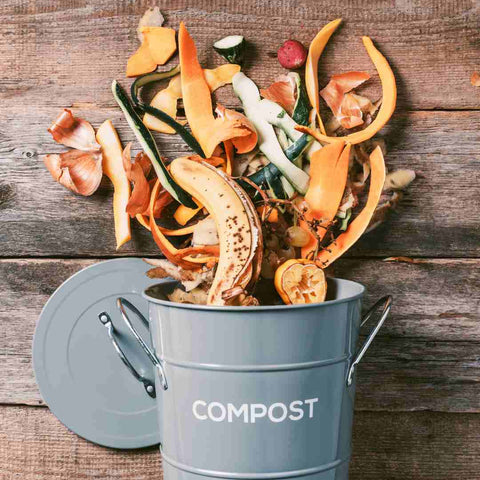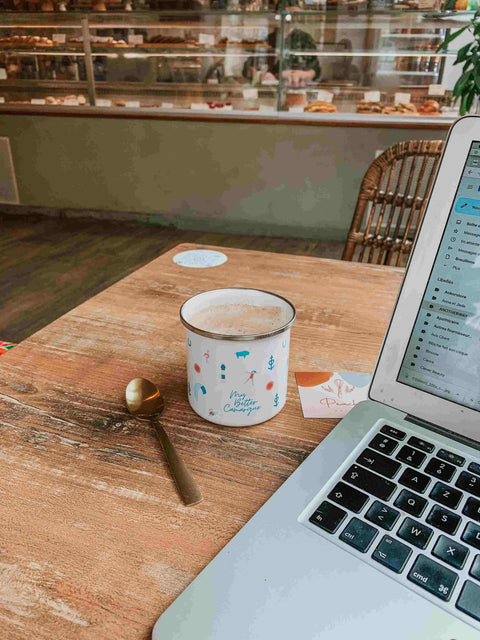Composting plant waste has become an essential practice in waste management, and France is taking bold steps to strengthen this initiative. From January 2024, the biowaste law will come into force, requiring citizens to compost their plant waste. In this article, we will see the reasons behind this decision and I will give you some practical advice for adapting to these changes.
What is biowaste?
Biowaste is essentially anything that comes from nature and can return to nature without leaving a trace. In other words, they are organic waste that decomposes naturally thanks to earthworms, bacteria, and fungi.
Imagine your fruit and vegetable scraps, peelings, coffee grounds, egg shells, and even dead leaves that litter your garden in the fall. All of this is biowaste! Pretty cool, right? It then becomes a sort of superfood for the earth, a way of doing natural recycling.
Why is composting essential?
Environmental Benefits of Compost
Composting has significant benefits for the environment.
In nature, when these organic materials come into contact with the earth, a natural degradation process takes place. The speed of this process depends on several factors, including the presence of microorganisms, heat, humidity and oxygen. A rich humus mixture will result, which will nourish the earth.
Reduction of organic waste
In our trash cans, it is estimated that organic matter represents around 47% of waste. Imagine the ecological disaster caused by the thousands of tonnes of bio-waste that we bury in the same places every year!!!
If we bury this bio-waste, the lack of oxygen completely changes the decomposition process, producing a large quantity of biogas, including methane, a greenhouse gas (GHG) 20 times more polluting than the CO2 released by our cars. .
On the other hand, the water contained in buried food picks up heavy metals and other acids when it comes into contact with the waste, and risks causing contamination of groundwater.
The Biowaste law in 2024
From January 1, 2024, France is taking a proactive measure to combat environmental challenges by imposing an obligation to compost plant waste. This law aims to encourage citizens to adopt more sustainable practices, in the same way as the selective sorting of paper, glass and plastic.
How to choose the right composter?
Whatever the configuration of my home, there is a suitable way to compost, and I have tested several…
Compost when you have a garden
At home, you can opt for an individual composter in your garden, in contact with the earth, and let nature take its course. You can very easily make one with a few pallets or other recycled materials. It's very practical, especially when there are a lot of people, and quite simple to use.
Compost in an apartment
If I don't have an outdoor space, I can purchase an odorless apartment composter. It is perfectly designed for the kitchen, without odors or risk of attracting insects, it will allow you to easily compost up to 400g of food waste per day, in order to obtain natural fertilizer for your plants and vegetable garden in 2 or 3 months , thanks to the simple action of its substrate based on organic charcoal and coconut fiber.
Personally, I've been using this bag for over 2 years, it's the simplest solution I've tested, however, it's more suitable for a single person or a couple who doesn't cook much.
Compost on a balcony
On a balcony, it is better to choose a small worm composter. It is a tank containing earthworms, which feed on bio-waste and transform it into potting soil and natural fertilizer, ideal for creating a little corner of greenery. It is a practical and effective solution for getting fertilizer quickly, however, it is a little complex to use.
Collective composter
I can make a request to the condominium association for the installation of a collective composter in my building. Otherwise, I find a community garden near me, or another collection point, where I can bring my bio-waste. Practical if it is nearby and you can easily access it to empty your waste bin regularly.
What can I put in the composter?
Types of compostable waste
You can compost all nitrogenous materials such as fruit and vegetable scraps, coffee grounds, and carbonaceous materials such as cardboard, eggshells, and dead leaves. Be careful though, the shells of nuts take a very long time to decompose, like the thick skins of citrus fruits, so it is advisable to cut them into small pieces.
What you can't compost
Certain elements can compromise the quality of the compost, for example, we do not put cigarette butts, or cat litter in the compost.
It is also best to avoid leftover meat, cheese and fish so as not to attract rats.
Some municipalities offer composting solutions to encourage their residents to compost. Ask your town hall for more information.
I hope this article has helped you better understand biowaste, and why it is important to compost.
It's almost Christmas, why not take the opportunity to offer a composter to your loved ones. Order the odorless indoor composter here today to receive it in time to put it on the tree!

